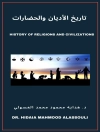The Ninety-five Theses or Disputation on the Power of Indulgences are a list of propositions for an academic disputation written in 1517 by Martin Luther, professor of moral theology at the University of Wittenberg, Germany, that started the Reformation, a schism in the Catholic Church which profoundly changed Europe. They advance Luther’s positions against what he saw as the abuse of the practice of clergy selling plenary indulgences, which were certificates believed to reduce the temporal punishment for sins committed by the purchasers or their loved ones in purgatory. In the Theses, Luther claimed that the repentance required by Christ in order for sins to be forgiven involves inner spiritual repentance rather than merely external sacramental confession. He argued that indulgences led Christians to avoid true repentance and sorrow for sin, believing that they could forgo it by purchasing an indulgence.
Circa l’autore
Martin Luther (1483-1546) was a German professor of theology, composer, priest, monk, and a seminal figure in the Protestant Reformation. Luther came to reject several teachings and practices of the Roman Catholic Church. He strongly disputed the Catholic view on indulgences and he proposed an academic discussion of the practice and efficacy of indulgences in his famous Ninety-five Theses of 1517. Luther’s refusal to renounce all of his writings at the demand of Pope Leo X and the Holy Roman Emperor Charles V resulted in his excommunication by the Pope and condemnation as an outlaw by the Emperor.




